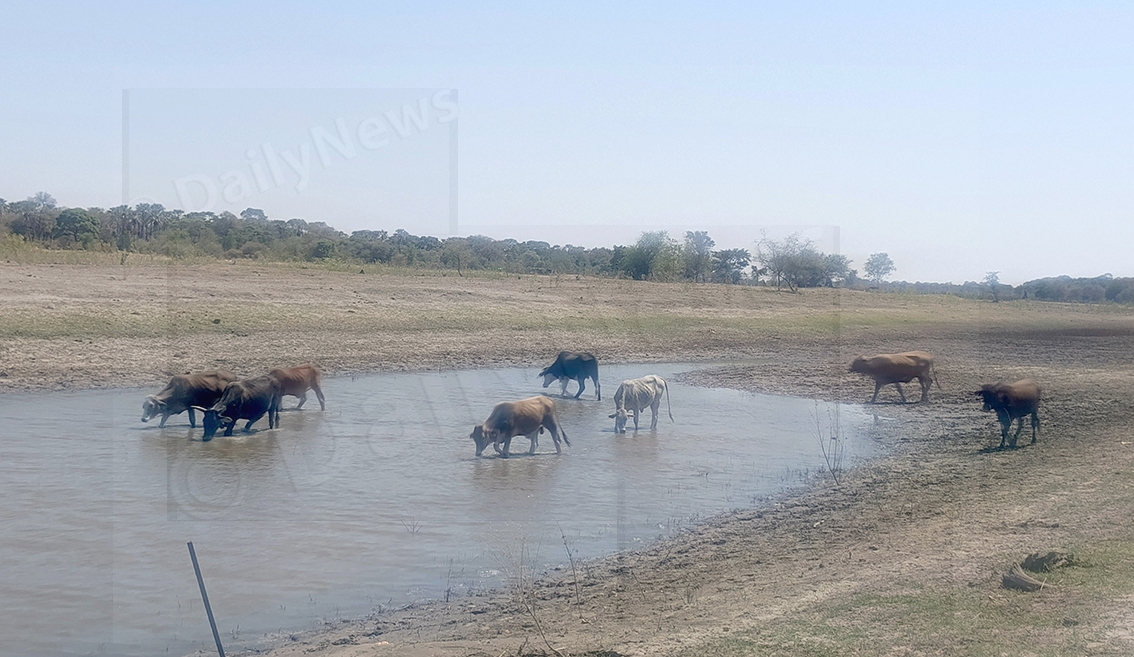Thamalakane runs dry threatens farming
05 Nov 2024
Members of the community who rely on the Thamalakane River for survival are facing an uncertain future as several sections of the river have dried up.
Just three months ago, the river served as a vital source of income for many residents, supported by seasonal floods that have now disappeared.
The Thamalakane River is nourished by the Boro and Gomoti channels, which reached the Boro-Thamalakane confluence in July. However, reports indicate that the Okavango Delta, a major tributary source, has experienced low inflows over the past few years, with this year’s water levels also falling significantly.
Traditionally, residents have engaged in various activities along the river, including fishing, molapo farming, and mokoro excursions. This year’s low rainfall has resulted in severe drought across the district, leading to significant livestock losses for farmers.
“Drought is upon us,” lamented Mr. Ditihalo Sefo, a veteran of molapo farming along the riverbank.
The rivers, lagoons, and water bodies have dried up. We are struggling.”
In a recent interview, Mr Sefo explained that after the arrival of seasonal floods, he planted three hectares of cabbage, watermelon, and various vegetables, though many crops had withered and died due to the river’s drying, putting immense pressure on his family who depended on traditional molapo farming for their livelihoods.
“This year, water flows were very low. My passion for farming led me to take a chance, as molapo farming has been a sustainable practice,” he stated. However, he expressed concerns that the high temperatures have drastically reduced moisture availability from the river, putting those in the molapo farming sector at risk of financial ruin.
Despite the challenges, Mr Sefo, who has been practicing molapo farming since 1990, maintained that it was a lucrative endeavour. “My life revolves around molapo farming. It produces better yields, allowing me to support my family, provide for my children’s education, and supply local supermarkets and schools,” he said.
He is also looking to diversify his business, having applied for the Thuo-Letlotlo programme, which offers training and grants to livestock farmers to enhance productivity and sustainability.
During the last council session, then-chairperson Mr Itumeleng Kelebetseng noted the severe impacts of scarce rainfall and high temperatures, resulting in the Thamalakane River experiencing abnormally low water levels.
Some sections of the river are completely dry, and other water sources are on the brink of drying up, threatening a critical shortage of forage for livestock. He mentioned that wildlife, particularly hippos, have been left stranded in clusters across the district due to the lack of water.
Moreover, he highlighted that the Temo Letlotlo programme, in its inaugural year, had a poor start, yielding minimal benefits for farmers due to the low rainfall in the North West district. Farmers who collected inputs but were unable to utilise them have been advised to store them for the upcoming season.
In response to the looming impacts of drought, the government has resolved to implement a 30 per cent livestock feed subsidy for roughage, concentrates, mineral supplements, botulism vaccine, and vitamin supplements for beef cattle and small stock, effective from July 1, 2024, through January 31, 2025. Ends
Source : BOPA
Author : Esther Mmolai
Location : MAUN
Event : interview
Date : 05 Nov 2024







